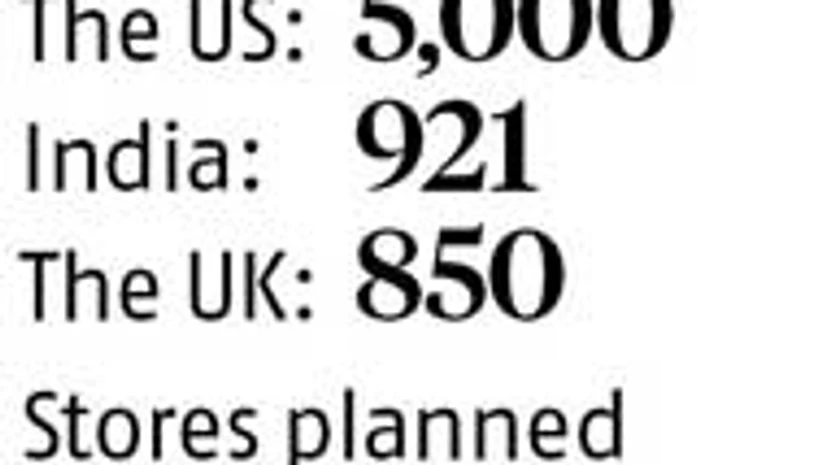In a market as competitive as India, one pizza chain has cracked the code to emerge the leader. India is today Domino's second-largest market after the US, according to the 2014-15 annual report of Jubilant FoodWorks, its Indian franchisee. The report stated that Domino's store count more than doubled in four years, touching 876 from 378 in 2010-11. From then to now (April-August 2015), Jubilant has only cemented Domino's position, adding another 45 stores, taking the tally to 921.

So how did Domino's achieve this feat, and that too in a market that has seen all the international fast-food brands come calling, resulting in overcrowding and clutter in key centres such as Mumbai and Delhi? The latter two account for 8.4 per cent of India's total retail spending of $525 billion (or Rs 31.5 lakh crore), according to Technopak. Standing out in a market such as this is hardly easy.
Jubilant, say analysts, has relentlessly focused on improving penetration by keeping costs low, launching affordable products and pushing both online and offline delivery formats. In the June 2015 quarter, for instance, Domino's market share, according to Euromonitor, was 72 per cent - higher than 70 per cent a year ago. It remains the leader in the organised pizza market by a sizeable margin, despite rivals such as Pizza Hut from Yum! Brands upping the ante in the last few years.
"Execution by Jubilant has been fairly effective, led by successful initiatives on new customer acquisition, network reach (with a first-mover advantage in tier two, three and four markets), product innovation and digital capabilities," says Latika Chopra, analyst at JPMorgan Asia Pacific.
At a time when discretionary spends have shown no signs of an uptick, the attention of food retailers has increasingly shifted from dine-in to delivery. While Jubilant does not give a break-up of its delivery and dine-in sales, analysts say that much of Domino's sales growth has been led by delivery.
During the company's June-ended quarter results Jubilant FoodWorks CEO Ajay Kaul said, "One in three delivery orders today is coming from online ordering. Our aim is to be ahead of the curve… Today, we are competing even with the Flipkarts of the world when it comes to delivery. So investments on these platforms, investment on hardware and customer experience, which is navigation on apps, mobile sites et cetera, will increase. Our aim is to take online ordering from 33 per cent of the total delivery sales to 50 per cent in the foreseeable one or two years."
With Domino's being the main contributor to Jubilant's annual turnover (Dunkin' Donuts has been in the market for only two years and is a small player), investment in digital capabilities is clearly the company's next big bet. In FY15, Jubilant's turnover was Rs 2,074 crore, a growth of 20 per cent over the previous year. Analysts estimate that Jubilant can take its topline to Rs 2,600 crore in FY16 and Rs 3,400 crore in FY17, a compounded annual growth rate of 29-30 per cent, on the back of its digital initiatives.
At the same time, Jubilant has no intention of slowing down on store expansion, despite slowdown pressures. The plan, according to Kaul, is to add 150 Domino's stores year-on-year, taking the count to 1,300 to 1,400 stores in the next few years. At a recent conference call with analysts, Kaul was even more ambitious in his target, saying that Jubilant's back-end could service 1,600-1,700 stores. "In the fourth quarter of FY15, we opened three new commissaries," he said. "One was in Nagpur to cater to central India. The other was to help our Bengaluru commissary and the third one was in Guwahati for the northeast." The number of factories, he added, jumped from six to nine and "we are working on building a mammoth facility in Greater Noida, which should take our capability to service stores to 1,600 to 1,700".
Experts say the secret of Jubilant's -and hence, Domino's - success in India has been its back-end that has allowed it to cut costs and expand aggressively, even as other retailers have struggled to get a handle on the two. While the company's same-store sales growth has slowed as a result of this rapid expansion - from high teens four years ago to mid-single digits now - analysts expect this to pick up as urban recovery sets in. "With macro conditions improving in the coming quarters and a recovery in urban sentiment, same-store sales growth should bounce back, while supply chain efficiencies and operating leverage will ensure profitable growth," says Nitin Mathur, emerging markets consumer research analyst, Societe Generale.
All this implies that Domino's will further consolidate its position in the Indian market.

)
